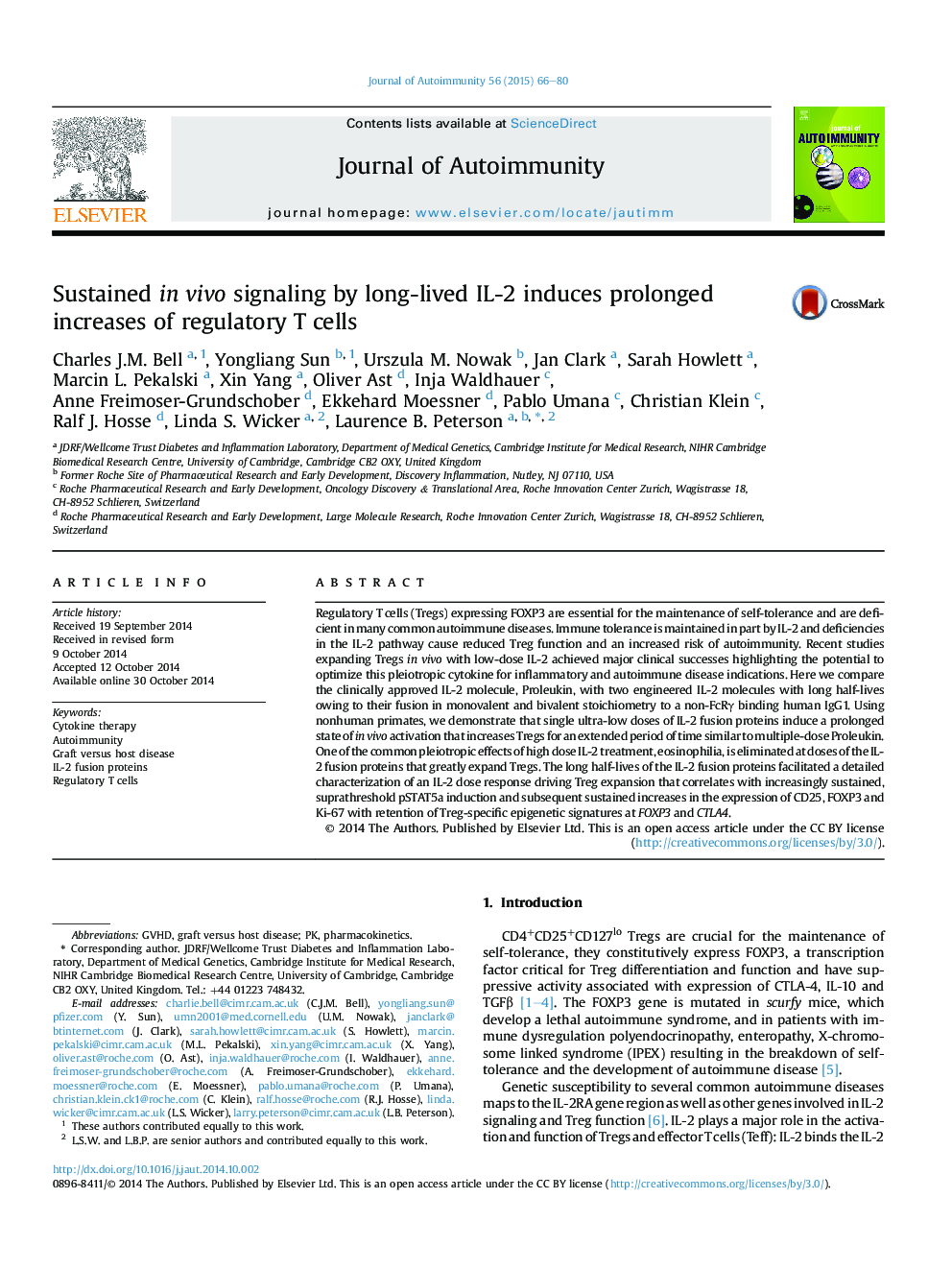| Article ID | Journal | Published Year | Pages | File Type |
|---|---|---|---|---|
| 6119249 | Journal of Autoimmunity | 2015 | 15 Pages |
Abstract
Regulatory T cells (Tregs) expressing FOXP3 are essential for the maintenance of self-tolerance and are deficient in many common autoimmune diseases. Immune tolerance is maintained in part by IL-2 and deficiencies in the IL-2 pathway cause reduced Treg function and an increased risk of autoimmunity. Recent studies expanding Tregs in vivo with low-dose IL-2 achieved major clinical successes highlighting the potential to optimize this pleiotropic cytokine for inflammatory and autoimmune disease indications. Here we compare the clinically approved IL-2 molecule, Proleukin, with two engineered IL-2 molecules with long half-lives owing to their fusion in monovalent and bivalent stoichiometry to a non-FcRγ binding human IgG1. Using nonhuman primates, we demonstrate that single ultra-low doses of IL-2 fusion proteins induce a prolonged state of in vivo activation that increases Tregs for an extended period of time similar to multiple-dose Proleukin. One of the common pleiotropic effects of high dose IL-2 treatment, eosinophilia, is eliminated at doses of the IL-2 fusion proteins that greatly expand Tregs. The long half-lives of the IL-2 fusion proteins facilitated a detailed characterization of an IL-2 dose response driving Treg expansion that correlates with increasingly sustained, suprathreshold pSTAT5a induction and subsequent sustained increases in the expression of CD25, FOXP3 and Ki-67 with retention of Treg-specific epigenetic signatures at FOXP3 and CTLA4.
Keywords
Related Topics
Life Sciences
Immunology and Microbiology
Immunology
Authors
Charles J.M. Bell, Yongliang Sun, Urszula M. Nowak, Jan Clark, Sarah Howlett, Marcin L. Pekalski, Xin Yang, Oliver Ast, Inja Waldhauer, Anne Freimoser-Grundschober, Ekkehard Moessner, Pablo Umana, Christian Klein, Ralf J. Hosse, Linda S. Wicker,
